
On the road to the new millennium
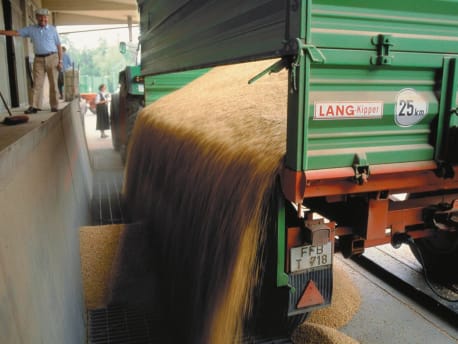
The economics of ecology
Butter mountains, milk lakes, an increasingly intensive agricultural sector and, last but not least, the nuclear disaster at the Soviet Chernobyl reactor made the topic of environmental conservation increasingly relevant throughout society in the 1980s. Agriculture was also in the eye of the storm in Germany as calls grew louder to focus more on the environment. The German Farmers’ Association and the agricultural industry voiced their support for the co-existence of conventional and organic agricultural and production methods.
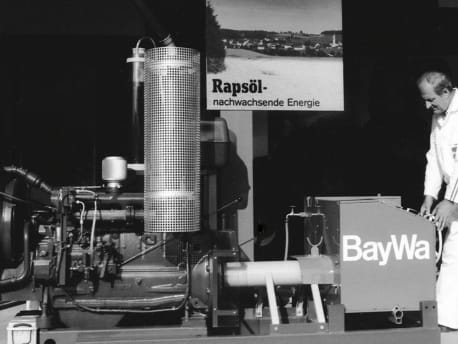
Environmental protection and electronics: the megatrends of the 1980s
Demand for energy-saving agricultural equipment rose, for both environmental and economic reasons. BayWa played a pioneering role in tackling this subject. In 1987, the company unveiled a Fendt tractor engine powered by a fuel mixture of diesel and rapeseed oil for the first time – a hybrid!
But BayWa also played a leading role in the development of intelligent technology. On-board computers and microprocessors in tractors and harvesting machinery plus feeding and milking machines in yard and barn equipment were just some of the era’s technological breakthroughs.
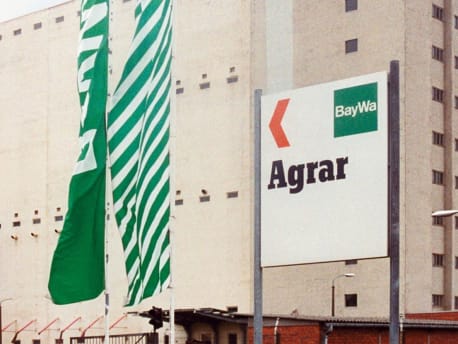
Tough times and a new ownership structure
Saturated markets, structural weakness in the agricultural sector and instabilities in construction all came together. As a result, BayWa was forced to deal with setbacks between 1980 and 1988. Although BayWa has never made a loss in its history, the earnings situation in these years was often very tense. Still, BayWa continued to expand its range of products and services with a focus on the customer.
A profound change for all Bavarian cooperatives and for BayWa AG’s ownership structure was the collapse of Bayerische Raiffeisen-Zentralbank (BRZ) in the mid-1980s. Bayerische Raiffeisen Beteiligungs AG was now one of BayWa’s main shareholders and continued to ensure that the company’s cooperative basis remained strong.
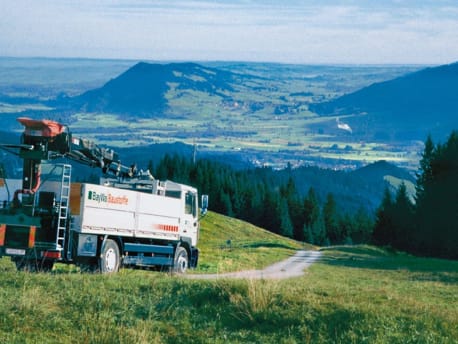
Environmental conservation continues to increase in importance
In Germany, the 1990s were marked by a series of environmental and food scandals. The ensuing debates showed that health protection and environmental conservation had gained importance in society.
With this in mind, BayWa expanded its product and service portfolio in every segment. In agriculture, this included environmentally sound fertilisers and crop protection products together with machines to ensure exact dosages and safe use.
In the mid-1990s, the Agricultural Equipment business unit extended its portfolio to include turnkey biogas plants, the lubricants required for their operation and the raw materials they needed.
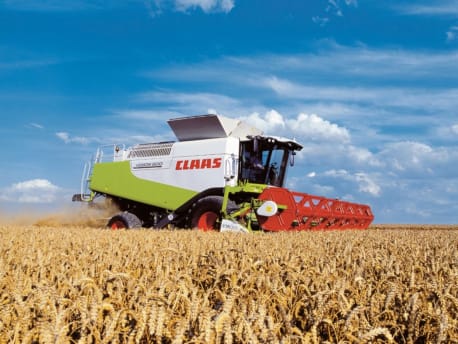
The curtain rises to new markets
The Iron Curtain fell; the Cold War ended. For BayWa, this opened up new opportunities and markets outside of Bavaria. Besides Austria, a country whose cooperative companies were involved in similar activities as BayWa was in Germany, the company expanded into the Czech Republic, Hungary, Poland and other markets in eastern Europe in the 1990s.
As a result, an important keystone business area for BayWa, agricultural trading, became even more international. But the new markets also meant problems: set-aside schemes, extensification programmes, cheap imports from eastern Europe and collapsing prices took their toll on the industry. BayWa also had to face falling revenues in some years.

BayWa sets up a foundation
In 1998, the year of its 75th anniversary, BayWa AG set up the BayWa Foundation. BayWa endowed the Foundation with financial resources of DM 2 million and bore all administrative costs. Today, the company donates €1 for every €1 in contributions the Foundation receives.
The Foundation’s aim: to support aid and training projects on the topics of nutrition and energy, based on the cooperative principle of “helping people to help themselves”.
The first project to receive the Foundation’s support was a Bulgarian agriculture project. Today, the BayWa Foundation supports a wide range of products in Germany and abroad.